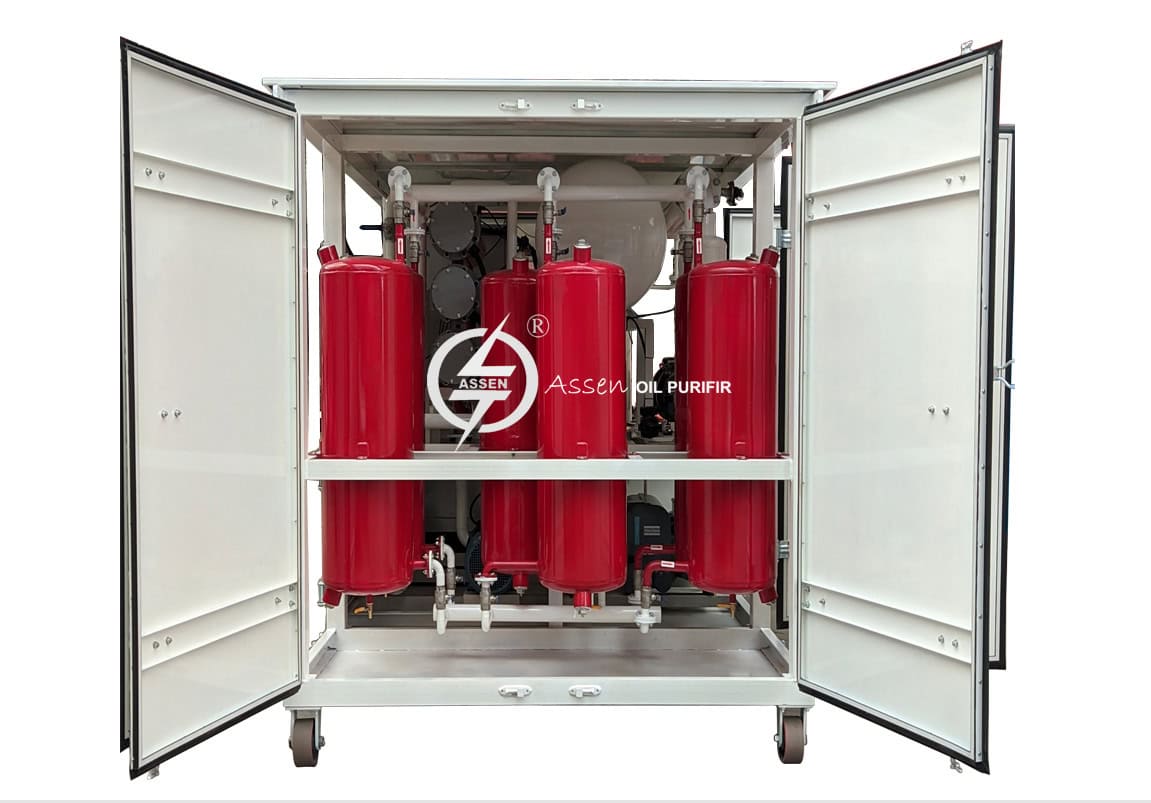The Role of a Transformer Oil Regeneration Plant in Modern Industry
The Role of a Transformer Oil Regeneration Plant in Modern Industry
Blog Article
How Regenerated Transformer Oil Extends Transformer Lifespan
The function of transformer oil is important in guaranteeing the reliability and long life of transformers, serving as both an insulator and coolant. Restored transformer oil supplies a compelling remedy to boost these functions by successfully getting rid of unsafe impurities that compromise efficiency.
Value of Transformer Oil
Transformer oil plays a critical function in the reliable operation of electric transformers. It mainly offers as a protecting tool, protecting against electric discharges and ensuring that parts run securely under high voltage problems. The oil's dielectric homes are fundamental to preserving the stability of the transformer, as they lessen the danger of failures that can cause expensive downtimes or disastrous incidents.
In addition to its shielding capacities, transformer oil likewise operates as a coolant. As transformers operate, they create warm that has to be dissipated to avoid overheating and succeeding damages. The oil circulates within the transformer, transferring and soaking up heat far from vital parts, thus maintaining optimum operating temperature levels.
Additionally, transformer oil functions as a barrier versus moisture and impurities, which can jeopardize the efficiency and longevity of the transformer. Its chemical properties aid in reducing the effects of acids and other results that might form with time, adding to the general health and wellness of the electrical system.
Advantages of Regenerated Oil

Furthermore, regenerated transformer oil has a lower degree of pollutants, including bits and contaminants that can degrade efficiency. This pureness not only enhances the oil's thermal conductivity but additionally expands the operational life-span of transformers by decreasing overheating dangers. The enhanced thermal security of regrowed oil ensures constant efficiency also under high operating temperatures, which is crucial for keeping transformer efficiency.
Another advantage is its environmental impact. Restored oil advertises sustainability by minimizing waste and the requirement for new oil production, therefore lowering the carbon impact related to transformer upkeep. Transformer Oil Regeneration Plant. The longevity of regrowed oil translates to lower maintenance expenses over time, as fewer oil changes and less regular equipment downtime are called for.
Refine of Oil Regeneration
The regeneration of transformer oil entails an organized process designed to restore the oil's initial residential or commercial properties and enhance its efficiency. This process normally starts with the removal of the made use of oil from the transformer, which is then based on different purification strategies.
The primary step in the regrowth procedure is the filtration, where solid pollutants such as sludge, metal, and dust fragments are eliminated. This is commonly followed by vacuum cleaner distillation, which assists to remove dampness and unpredictable compounds, consequently boosting the oil's dielectric toughness.

Influence on Transformer Efficiency
Bring back the buildings of regenerated transformer oil significantly influences the total performance of transformers. Improved dielectric strength is one of the most important advantages, as it enables better insulation and decreases the likelihood of link electric breakdown. This renovation causes an extra steady operation under high voltage problems, eventually resulting in increased performance.
In addition, the elimination of pollutants and destruction items throughout the regeneration procedure lessens the risk of getting too hot. Cleanser oil assists in better warmth dissipation, which is essential for keeping optimum operating temperatures. As an effect, the thermal efficiency of the transformer is improved, enabling greater tons without jeopardizing reliability.
Furthermore, the chemical stability of regrowed oil makes certain long term functional life. It read what he said stands up to oxidation and deterioration, reducing the regularity of maintenance interventions and oil replacement. This stability not only adds to improved efficiency but also lines up with sustainability goals by minimizing waste.
Future of Transformer Upkeep
As developments in innovation remain to reshape the landscape of electrical engineering, the future of transformer maintenance is positioned for significant makeover. The assimilation of clever modern technologies, such as IoT sensing units and anticipating analytics, enables real-time surveillance of transformer wellness, improving the capability to preemptively resolve issues before they intensify right into major failings. This positive approach not just makes best use of operational effectiveness yet likewise prolongs the life-span of transformers.
Moreover, the application of artificial knowledge (AI) in information evaluation allows for more precise fault discovery and diagnosis. By leveraging artificial intelligence algorithms, upkeep groups can identify patterns in functional information that human analysts may ignore, resulting in more enlightened decision-making.
Furthermore, the adoption of environment-friendly techniques, consisting of making use of regenerated transformer oil, is set to redefine upkeep protocols. This sustainable approach not just decreases ecological influence but additionally boosts the overall health of the transformer.
Last but not least, the change in the direction of automation in upkeep procedures is expected to improve operations, lower downtime, and lower expenses. As these advancements remain to evolve, the future of transformer upkeep will most certainly come to be more reliable, reputable, and sustainable, guaranteeing the navigate here integrity of vital electric framework.
Final Thought
The utilization of regenerated transformer oil significantly improves the functional long life of transformers. By successfully bring back dielectric strength and thermal security, this oil plays a critical function in mitigating threats connected with overheating and oxidation. The regeneration procedure not just eliminates harmful impurities but also reduces upkeep frequency and oil substitute expenses. Eventually, the fostering of regenerated oil represents a crucial innovation in transformer maintenance, making certain optimum efficiency and sustainability in the monitoring of electric facilities.
The function of transformer oil is important in guaranteeing the reliability and long life of transformers, serving as both an insulator and coolant.Transformer oil plays a crucial role in the effective procedure of electric transformers. Regrowed oil advertises sustainability by minimizing waste and the need for brand-new oil manufacturing, consequently decreasing the carbon footprint associated with transformer upkeep.Restoring the residential or commercial properties of regenerated transformer oil substantially influences the general performance of transformers.The use of regenerated transformer oil considerably boosts the functional longevity of transformers.
Report this page